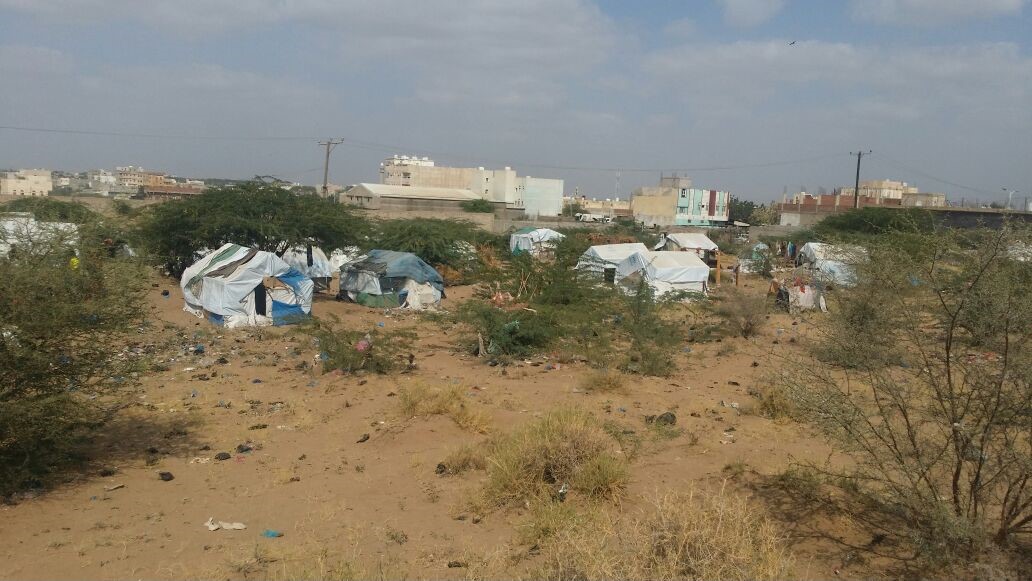Before the intervention of the Public Works Project
Mosques .. water source for displaced people of Beit Al - Faqih camp
The Directorate of Beit Al-Faqih is located in the southern part of Hodeidah province , about 85 kilometers from the center of the province. It is one of Hodeidah directorates with a population of 342,646 divided between 176946 males and 165,700 females. Its location is in the link between the governorates of Taiz and Hodeidah.
Several districts are located on the north, surrounded by the directorate of Mansourieh, to the south by directorate of Zabid, and from the east by Rima governorate.
Most of the residents and citizens of the Directorate of Beit al-Faqih rely on agriculture, grazing and raising livestock as well as knitting as famous professions and source of income to support their needs and their relatives. However, because of the country's devastating crisis and tragic conditions, most of these sources have become less , especially farmers who are suffering from a crisis in oil derivatives for irrigation and the production of agricultural crops.
But what was more painful and cruel is the displaced camp in the directorate where we found the directorate receives and includes hundreds of displaced people who came from several provinces and directorates to escape the fear of war. Those people are fearing from war and the don't have the most basic elements to live.
Hereinafter, is the story of the camp
Water is being brought from mosques
Saddam Ali Speight Hadi - a displaced person from the province Hajja and the representative of the displaced camp of Beit al-Faqih tells us the suffering of the displaced by saying " the circumstances have forced more than thirty five family from several provinces and districts, including Abs , Haradh and Midi, and the provinces of Lahij and Taiz to flee to Bait Al-Faqih directorate. The most basic elements of a living are not available , there are no water, no electricity, no toilets, and the most suffering is the situation of disabled women displaced from Lahj.
Children and their parents go to the mosques during prayer to bring water. After the prayer time ends, the mosques are closed, so they must use this water until the time of the second Adhaan "call for pray".
Sbeit stresses that the available water to displaced people in the camp is very less and it's being specialized for cooking and drinking . As for washing, it is not a priority, it may take a week without having a shower in a hot atmosphere. Women relieve themselves overnight because there are no bathrooms , children are bathing in a swamp of stagnant water. This is a view that reflect the suffering . The sun is hot and the children can't handle it.




